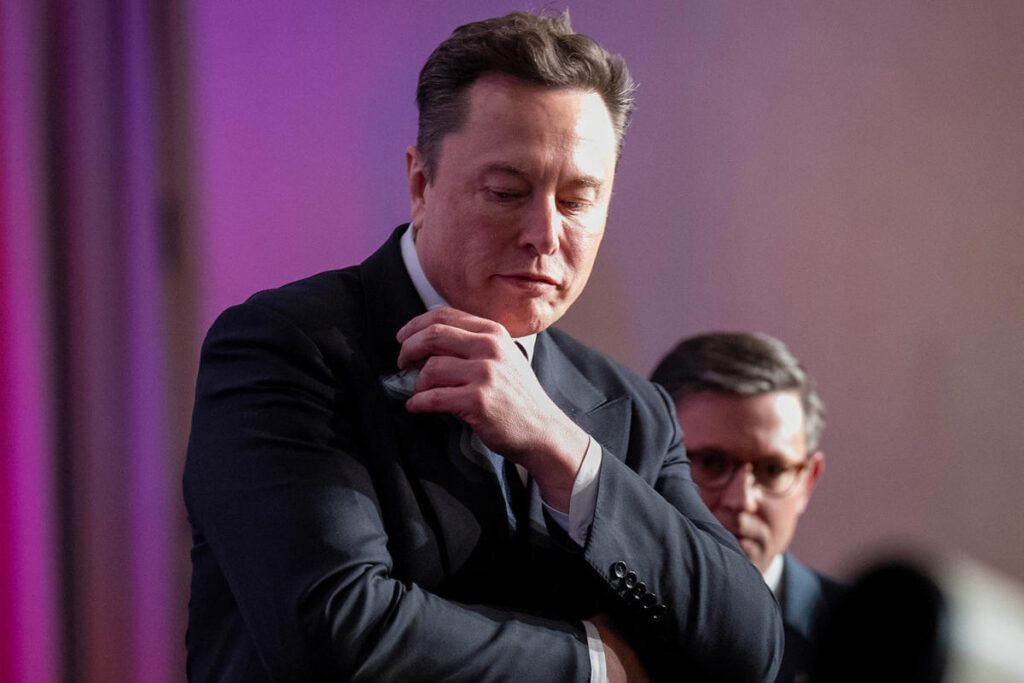Tech billionaire Elon Musk has been flexing his political influence as he aligns himself with President-elect Donald Trump, even before Trump took office. Musk’s involvement escalated dramatically when he helped initiate a revolt against a bipartisan funding bill, openly challenging the leadership of House Speaker Mike Johnson and Republican officials who crafted the legislation. The dissent caused budget negotiations to spiral into chaos, increasing the risk of a government shutdown over the weekend. House Majority Leader Steve Scalise confirmed that Musk’s efforts were effective in stalling the bill, which was intended to maintain government funding through mid-March.
Throughout the day, Musk used the social media platform X to publicly denounce the funding bill, labeling it “criminal” due to its extensive length and spending measures. He made over 100 posts, urging his followers to contact their representatives. Musk utilized memes and alarmist messaging that also contributed to the trending topic “Kill Bill” on X. He vehemently warned legislators that those who supported the bill would face electoral consequences in two years. Critics quickly pointed out inaccuracies in his claims—like an exaggerated congressional pay raise and unfounded allegations about funding bioweapon labs and NFL stadiums—yet his campaign struck a chord with many, as indicated by the political nicknames some Democrats bestowed upon him.
Musk’s decision to oppose the funding bill was made known early in the morning, with Trump rallying behind Musk’s stance about 13 hours later. The rapid reaction from Trump demonstrated Musk’s growing influence, highlighting the extent to which Musk’s online daring spirit could shape political discourse, even when he had no prior political experience or office. Despite a lack of formal authority, Musk’s wealth and support for Trump positioned him as a pivotal figure in the Republican landscape leading up to the new administration.
With Musk serving as a nongovernmental adviser and co-leading a government efficiency initiative, his role in the Trump administration will be closely monitored and debated. As a result of his actions, some Democrats expressed skepticism regarding Trump’s decision-making autonomy, questioning whether Musk was operating as a shadow president. Conversations about the implications of billionaire influence in politics intensified, especially from figures like Sen. Bernie Sanders, who cautioned against allowing individuals of great wealth to steer governmental processes.
As discussions continued, some Republican lawmakers acknowledged Musk’s impact while refraining from giving him sole credit for the bill’s stalling. Others, such as Sen. Ted Budd and Rep. Marjorie Taylor Greene, reiterated Musk’s ability to tap into the public’s dissatisfaction with government spending, suggesting that his social media engagement resonated with broader sentiments among constituents. Despite this acknowledgment, some conservative lawmakers expressed their opposition to attributing all agency to Musk, with some citing their criticisms of the bill prior to his involvement, signaling diverging views within the party about the appropriateness and risks of Musk wielding influence in such a manner.
During the day of his campaign against the funding bill, the chances of a government shutdown dramatically rose according to betting markets, from 12% to 40%. Musk’s ability to capture wide attention was evidenced by the millions of views his posts garnered on X, illustrating the profound impact of social media in shaping political narratives and outcomes. With Musk’s wealth now exceeding $450 billion, positioning him as the world’s richest person, the potential for his influence on future legislative debates raises significant questions about the interplay between wealth, media, and elected officials in the evolving landscape of American politics. As he forays into this new realm, the consequences of his actions will resonate far beyond the current funding dispute, challenging traditional notions of political authority and advocacy.

